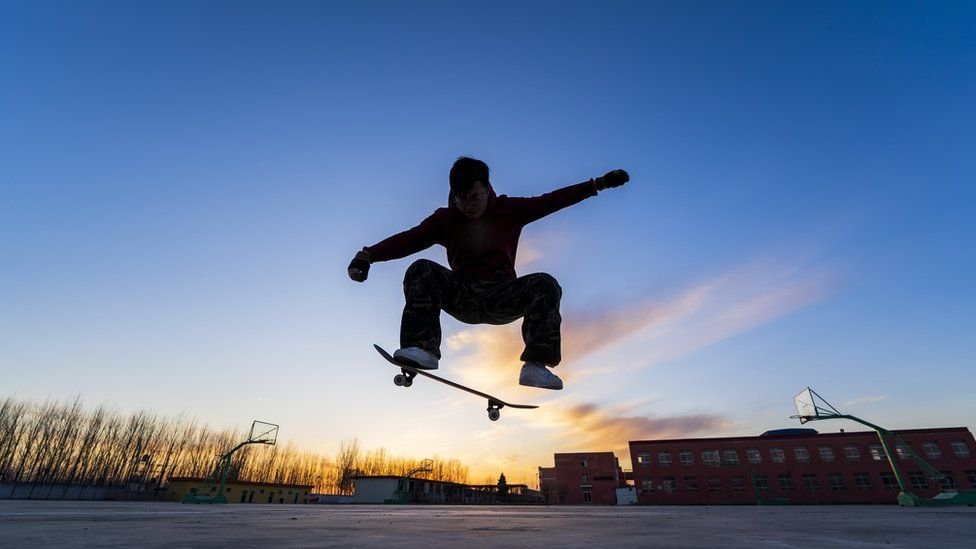Skateboarding made its long-anticipated debut in the Tokyo 2020 Olympics, marking a significant milestone for a sport that began on the streets and in empty swimming pools. The inclusion of skateboarding in the Olympics represents not just a triumph for the sport but also a broader recognition of its cultural and athletic value.
History of Skateboarding
Skateboarding has humble beginnings rooted in the surf culture of California during the 1950s. Originally, surfers attached wheels to wooden planks to mimic surfing on land, leading to the creation of the first skateboards. Over the decades, skateboarding evolved into a distinct sport with its own culture, styles, and icons, such as Tony Hawk and Rodney Mullen, who helped shape its competitive and creative aspects.
The Journey to the Olympics
The journey of skateboarding to the Olympics was a long one, characterized by efforts from enthusiasts and organizations pushing for recognition. The International Olympic Committee (IOC) first considered including skateboarding in the late 1990s, but it wasn’t until 2016 that it was officially announced as part of the Tokyo 2020 Games. This journey involved meeting rigorous standards and demonstrating the sport’s global appeal and structured competition format.
Skateboarding in the Tokyo 2020 Olympics
In Tokyo, skateboarding featured two disciplines: street and park. The street competition took place on a course resembling a city street, with stairs, handrails, and ledges. The park competition was held in a bowl-like course with steep drops and curved walls. Both categories saw fierce competition from top skateboarders worldwide. Notable participants included Nyjah Huston from the USA and Yuto Horigome from Japan, who won the inaugural men’s street event.
Impact on the Skateboarding Community
The inclusion of skateboarding in the Olympics has significantly boosted the sport’s visibility. It has drawn attention from mainstream media, increased sponsorship opportunities, and inspired a new generation of skateboarders. This newfound recognition has led to a surge in skateboarding’s popularity, with more young people taking up the sport and skateparks popping up in urban areas globally.
Training for Olympic Skateboarding
Training for Olympic skateboarding involves rigorous routines, combining physical conditioning, skill practice, and mental preparation. Professional skateboarders often train in specialized facilities equipped with replicas of Olympic courses. Unlike the freestyle nature of amateur skateboarding, Olympic-level training is highly structured, focusing on perfecting tricks and improving consistency.
Judging Criteria in Olympic Skateboarding
Olympic skateboarding is judged on several criteria, including difficulty, execution, and originality of tricks. The scoring system rewards innovative and complex maneuvers performed with style and precision. Judges also consider the skateboarder’s use of the course and their overall flow during the run, making it a comprehensive evaluation of skill and creativity.
Challenges and Controversies
The inclusion of skateboarding in the Olympics has sparked debates within the skateboarding community. Purists argue that the sport’s rebellious and free-spirited nature doesn’t align with the structured format of the Olympics. Additionally, athletes face challenges such as adapting to the pressure of international competition and maintaining their unique style while meeting judging criteria.
Future of Skateboarding in the Olympics
Looking ahead, the future of skateboarding in the Olympics seems promising. The sport is set to feature in upcoming Games, with potential for new events and categories. Improvements might include refined judging criteria and better integration of skateboarding culture into the Olympic framework, ensuring that the sport’s essence remains intact.
Economic Impact
The economic impact of skateboarding’s Olympic debut is substantial. Increased media coverage and popularity have attracted sponsorship deals and endorsements for top athletes. Additionally, the construction of new skateparks and facilities boosts local economies, creating jobs and promoting tourism.
Cultural Impact
Skateboarding’s inclusion in the Olympics has influenced youth culture, emphasizing the sport’s values of creativity, individuality, and perseverance. It reinforces skateboarding as more than just a sport – it’s a lifestyle that resonates with people worldwide, fostering a sense of community and shared identity.
Female Skateboarders in the Olympics
Female skateboarders have gained significant recognition through the Olympics. Athletes like Sky Brown from the UK and Leticia Bufoni from Brazil have become role models, inspiring young girls to pursue skateboarding. The Olympics has highlighted the growth of women’s skateboarding, promoting gender equality in the sport.
Skateboarding Equipment
Olympic skateboarders use highly specialized equipment tailored to their style and the demands of competition. Advances in skateboard technology, such as lighter and more durable decks, precision trucks, and high-performance wheels, enhance performance and allow for more complex tricks.
Global Reach of Skateboarding
Skateboarding’s global reach is evident as it continues to grow in popularity worldwide. Countries across all continents have embraced the sport, hosting international competitions and nurturing local talent. This global presence is crucial for the sport’s development and its continued inclusion in the Olympics.
Conclusion
The inclusion of skateboarding in the Olympics marks a significant milestone for the sport, bringing it into the global spotlight and fostering its growth. With increased visibility, economic benefits, and cultural impact, skateboarding has solidified its place on the world stage. The future looks bright as the sport continues to evolve, inspiring new generations of skateboarders worldwide.



